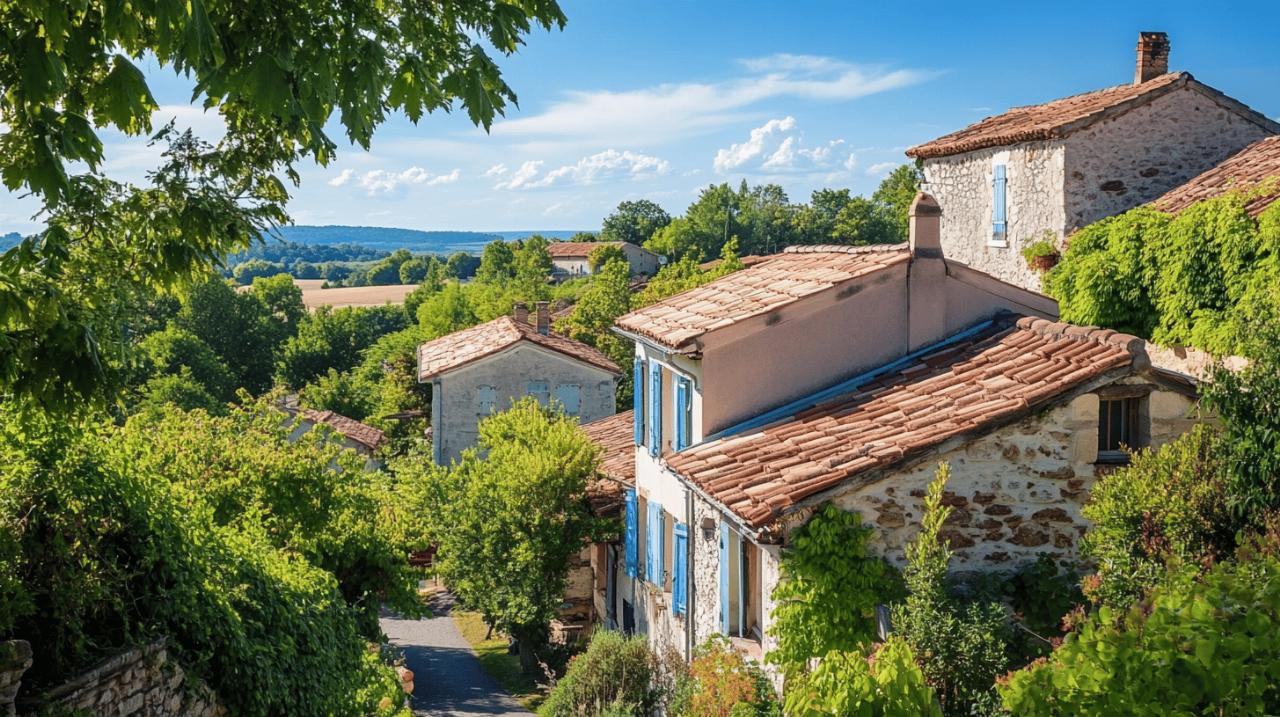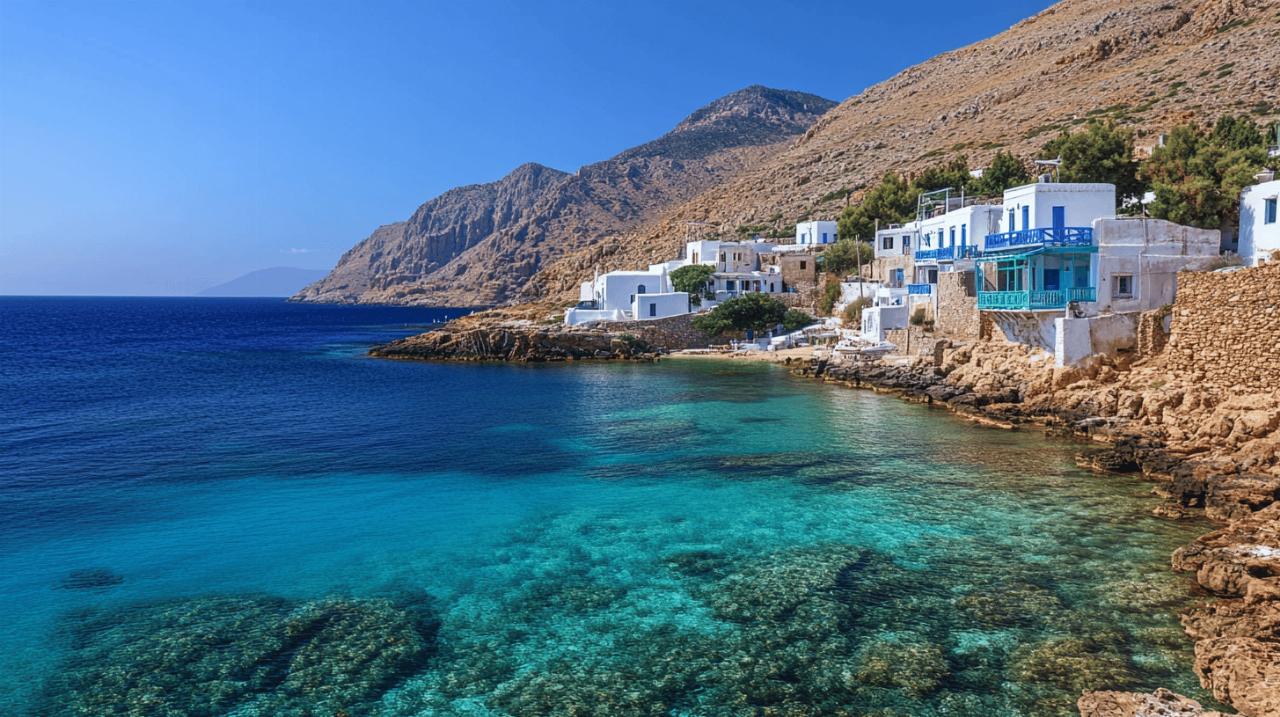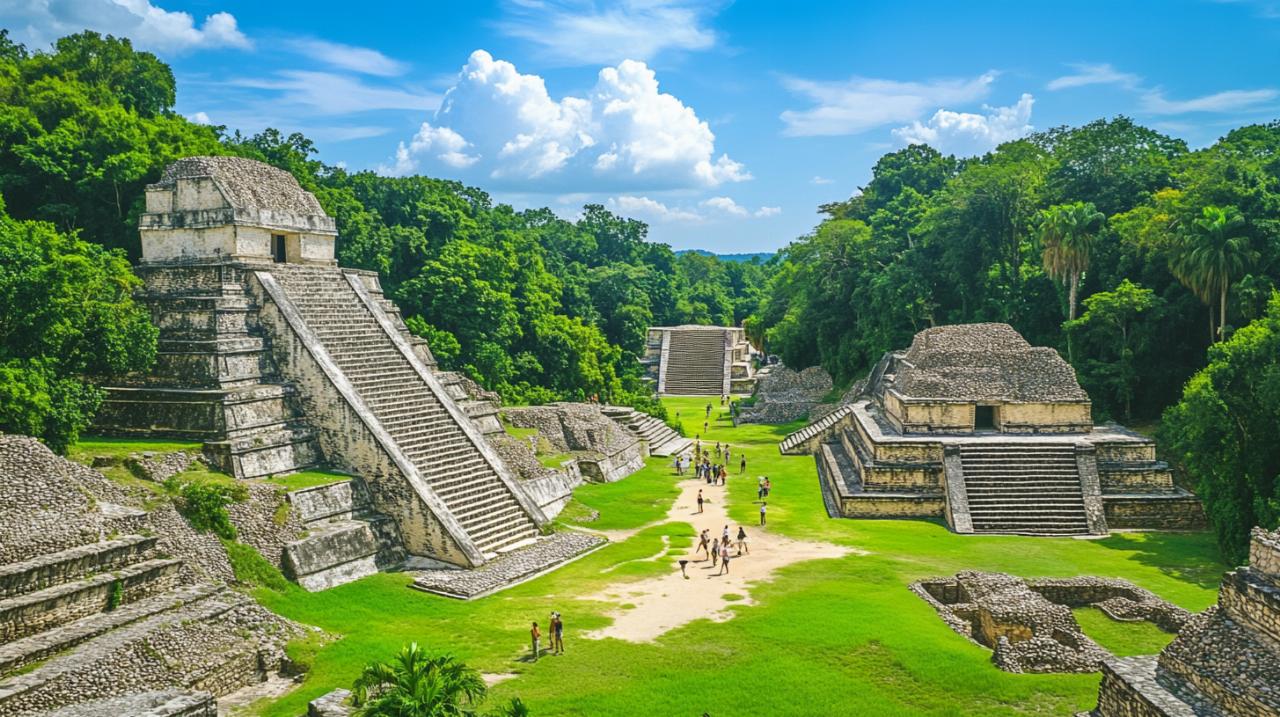Finding an affordable property in France remains a realistic prospect for British buyers willing to venture beyond the headline-grabbing markets of Paris and the Côte d'Azur. Whilst the idea of owning a charming French home continues to captivate, the key to success lies in understanding not just the initial purchase price, but the full spectrum of ongoing costs that accompany property ownership across the Channel. From regional tax variations to often-overlooked local levies, a comprehensive financial picture is essential before signing on the dotted line. This guide explores where to find genuine bargains and how to calculate the true cost of your French property adventure.
Identifying france's most affordable property markets for british buyers
Regional price variations: where your pound stretches furthest
The French property market presents remarkable disparities depending on location, offering savvy buyers opportunities to secure substantial homes at prices that would scarcely purchase a studio flat in many British cities. Whilst Paris commands an eye-watering twelve thousand euros per square metre, regions such as the Creuse, the Berry, and inland areas of Brittany offer properties at a fraction of this cost. The average city centre apartment across France sits at approximately five thousand seven hundred euros per square metre, yet this figure conceals tremendous variation. Toulouse presents opportunities at around four thousand three hundred euros per square metre, whilst Grenoble offers even more affordable options at roughly three thousand two hundred euros. For those seeking value without sacrificing accessibility, cities like Bordeaux and Lyon provide a middle ground, though inland rural areas consistently deliver the most competitive pricing. The key consideration remains balancing affordability with practical access to amenities, healthcare, and transport links that matter for either permanent residence or extended stays.
Hidden gems beyond the usual suspects: rural france's best-kept secrets
Venturing into the less-travelled corners of France reveals property opportunities that seem almost implausible by British standards. The Creuse, nestled in the Limousin region, epitomises rural French charm with its rolling countryside and stone farmhouses available at remarkably modest prices. Similarly, the Berry region just south of the Loire Valley offers that quintessential French lifestyle without the inflated costs associated with more famous neighbours. Inland Brittany maintains the cultural character of the peninsula whilst shedding the premium attached to coastal locations. The Auvergne, with its volcanic landscapes and mountain vistas, presents another compelling option for those prepared to embrace renovation projects. Poitou-Charentes, when explored away from its attractive coastline, reveals villages and small towns where property prices remain genuinely accessible. These regions share common characteristics: they require a willingness to integrate into local communities, an acceptance that amenities may be more spread out, and often, a readiness to undertake renovation work. The trade-off, however, is the opportunity to acquire substantial properties with land at prices that have become increasingly rare elsewhere in Western Europe.
Understanding French Property Taxes: Taxe Foncière, Taxe d'Habitation, and Beyond
Annual property tax obligations: what every homeowner must pay
French property ownership carries distinct tax obligations that differ significantly from the British system, and understanding these is crucial for accurate budgeting. The taxe foncière represents an annual land and property tax paid by owners, calculated based on the theoretical rental value of the property and varying considerably by commune. Unlike the former council tax equivalent, this tax applies regardless of whether the property is occupied or generates income. The taxe d'habitation, which once applied to all residents, has been reformed and now primarily affects second home owners, making it particularly relevant for British buyers maintaining a property in France whilst retaining a UK residence. For those generating rental income from their French property, taxation becomes more complex, with non-residents facing a minimum rate of twenty percent on rental income plus social taxes. These social taxes, known as CSG and CRDS, add an additional layer of cost, though rates for UK nationals affiliated with EU systems may benefit from reduced rates of seven and a half percent rather than the standard seventeen percent. The obligation to declare rental income exists from the first euro earned, with no threshold exempting smaller amounts.
Regional tax variations: how location impacts your yearly liabilities
The administrative structure of France means that local taxes can vary dramatically between neighbouring communes, adding another dimension to property selection beyond the purchase price alone. Municipalities set their own rates for both taxe foncière and taxe d'habitation, reflecting local services, infrastructure investment, and fiscal policies. A property in one village might carry substantially lower annual tax obligations than a comparable property just a few kilometres away in a different commune. This variation stems from local authority decisions regarding public services, school provisions, and community facilities. Prospective buyers would be wise to investigate not just current tax levels but also the trajectory of local authority spending, as communes facing financial pressures may increase rates over time. Additionally, properties located in areas with protected heritage status or within conservation zones may face different regulatory requirements that, whilst not taxes per se, carry financial implications through restricted renovation options and mandatory maintenance standards. The practical reality is that two seemingly similar properties at identical purchase prices can present quite different long-term financial commitments depending on their precise location and the fiscal approach of their respective local authorities.
Local levies and hidden costs that impact your budget
Utility charges, waste collection, and community fees
 Beyond the headline taxes lie numerous smaller charges that collectively represent a significant ongoing cost for property owners in France. Utility connections and consumption charges operate differently from British norms, with standing charges for water, electricity, and increasingly fibre broadband requiring consideration. Waste collection services, which might be included within local taxes in some British councils, often appear as separate charges in France, particularly in rural areas where collection services are less frequent. Properties within developments or converted buildings may also incur syndicate charges, similar to service charges in British leasehold arrangements, covering communal area maintenance, building insurance, and shared facility upkeep. These charges can vary enormously, from modest annual fees in simple rural buildings to substantial sums in more complex developments with pools, grounds, or concierge services. Properties with wells, septic tanks, or other private utility arrangements introduce additional maintenance obligations and periodic inspection requirements mandated by regulation. For those purchasing rural properties with land, agricultural tax considerations may apply depending on how the land is classified and used. Even seemingly minor costs such as chimney sweeping, which is legally required for insurance purposes, or mandatory property diagnostics that must be renewed periodically, accumulate into a notable portion of annual property running costs.
Beyond the headline taxes lie numerous smaller charges that collectively represent a significant ongoing cost for property owners in France. Utility connections and consumption charges operate differently from British norms, with standing charges for water, electricity, and increasingly fibre broadband requiring consideration. Waste collection services, which might be included within local taxes in some British councils, often appear as separate charges in France, particularly in rural areas where collection services are less frequent. Properties within developments or converted buildings may also incur syndicate charges, similar to service charges in British leasehold arrangements, covering communal area maintenance, building insurance, and shared facility upkeep. These charges can vary enormously, from modest annual fees in simple rural buildings to substantial sums in more complex developments with pools, grounds, or concierge services. Properties with wells, septic tanks, or other private utility arrangements introduce additional maintenance obligations and periodic inspection requirements mandated by regulation. For those purchasing rural properties with land, agricultural tax considerations may apply depending on how the land is classified and used. Even seemingly minor costs such as chimney sweeping, which is legally required for insurance purposes, or mandatory property diagnostics that must be renewed periodically, accumulate into a notable portion of annual property running costs.
Renovation Restrictions and Associated Costs in Historic Areas
France's commitment to preserving its architectural heritage, whilst admirable, introduces constraints and costs that British buyers may not anticipate. Properties located within protected zones or listed as monuments historiques face strict regulations governing any alterations, extensions, or even routine maintenance work. The Architectes des Bâtiments de France holds significant authority over modifications in these areas, potentially requiring specific materials, traditional construction methods, or particular aesthetic outcomes that substantially increase renovation costs compared to unrestricted properties. Even outside formally protected zones, local planning regulations often prove more prescriptive than British equivalents, with greater emphasis on maintaining regional architectural character. Planning permissions, known as permis de construire for major works or déclaration préalable for minor alterations, require navigation of French administrative procedures that can prove time-consuming and occasionally frustrating. The costs associated with French architects, whose involvement is mandatory for larger projects, and the generally higher rates charged by French artisans for traditional building skills, mean that renovation budgets require careful planning. Properties purchased cheaply in historic villages may seem like bargains until the true cost of bringing them to habitable standard within regulatory constraints becomes apparent. This reality doesn't preclude purchasing renovation projects, but it does demand realistic budgeting and acceptance that timescales may extend beyond initial expectations.
Calculating total cost of ownership: a comprehensive british buyer's guide
Building your complete budget: from purchase price to annual running costs
Constructing an accurate financial picture of French property ownership requires methodical consideration of every cost element from acquisition through ongoing occupation. The purchase itself carries substantial fees, with older properties attracting stamp duty at five point eight percent in most departments, though a handful apply five point zero nine percent. Notary fees, encompassing their professional charges and various administrative costs, typically add between seven and a half to eight and a half percent for older properties, or two to three percent for new builds, though new properties carry twenty percent VAT. A deposit of five to ten percent becomes payable upon signing the compromis de vente, the initial binding contract. Beyond acquisition, annual costs include the taxe foncière, the taxe d'habitation for second homes, insurance which is mandatory, utility standing charges, and any syndicate or community fees. Properties generating rental income face taxation on that income, whilst those valued above one point three million euros trigger the wealth tax known as IFI, with rates from zero point five to one and a half percent. Maintenance costs, whether routine or addressing inevitable issues in older buildings, require realistic provision, as do periodic regulatory inspections and certifications. Currency fluctuation represents an additional consideration, as both purchase prices and ongoing costs denominated in euros expose sterling-based budgets to exchange rate movements. A comprehensive budget accounts for all these elements, allowing proper assessment of whether an apparently cheap property genuinely represents value once all associated costs are factored into the equation.
Currency Considerations and Long-Term Financial Planning for Cross-Channel Property Ownership
The reality of owning property in France whilst maintaining financial ties to the United Kingdom introduces currency exposure that demands thoughtful management. Exchange rate movements between sterling and the euro can significantly impact both the initial affordability of a purchase and the ongoing cost of maintaining the property. A property that seems competitively priced when sterling is strong may become considerably more expensive in real terms should the pound weaken, affecting everything from mortgage payments on euro-denominated borrowing to the sterling cost of paying annual taxes and utility bills. British buyers have several options for managing this exposure, from maintaining euro bank accounts and transferring funds opportunistically, to using specialist foreign exchange services that offer more competitive rates than high street banks. For those generating rental income in euros, natural hedging occurs as euro income offsets euro costs, though any surplus intended for repatriation to the UK remains subject to exchange rate fluctuation. Long-term financial planning must also consider potential changes to tax treaties, inheritance law differences between French and British systems, and the implications of residence status. Non-residents can remain in France for ninety days per one hundred and eighty day period without extended visas, but those spending more time may need to consider the residency implications and associated tax obligations. UK nationals can apply for permanent residency after five years of residence, or three if married to a French citizen, though this carries its own administrative requirements. Successfully navigating French property ownership from a British perspective requires not just finding an affordable property, but constructing a sustainable financial framework that accounts for tax obligations, currency movements, and the practicalities of cross-border property management over the long term.







